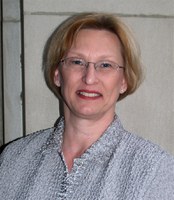NDSU Extension Service: Addressing Family and Consumer Needs
(Click the image below to view a high-resolution image that can be downloaded)
By Deb Gebeke, Assistant Director of Family and Consumer Sciences
NDSU Extension Service
Nearly 30 percent of North Dakota adults and 11 percent of high school students are obese, 8.6 percent of adults have diabetes and almost 7 percent of adults suffer from heart disease, according to the state’s latest health statistics.
Statistics also show that 17 percent of the state’s working families with children are considered low income, and the state’s population of residents 65 and older is expected to increase 50 percent, from 98,595 in 2011 to 148,060 in 2025.
These are among the challenges facing North Dakotans. One of the North Dakota State University Extension Service’s goals is to help residents overcome those and many other issues by providing the people with the knowledge and skills they need to improve their health, nutrition and quality of life.
This mission is as vital now as it was when the national Cooperative Extension Service was created with the signing of the Smith-Lever Act on May 8, 1914. Cooperative Extension is a state-by-state network of educators who extend university-based research and knowledge to the people. This year, NDSU Extension is celebrating 100 years of extending knowledge and changing the lives of North Dakota residents.
In the beginning, Extension improved the lives of countless people as they learned about food safety and food preservation, in addition to healthful eating and nutrition. While times and technologies have changed, we still use the latest unbiased, research-based information to help people make good choices related to their health and well-being.
This program area, now called family and consumer sciences, is one of four primary components of NDSU Extension’s efforts. The other three are community vitality, agriculture and natural resources, and 4-H youth development.
What does Extension’s family and consumer sciences (FCS) programming look like today?
- Extension provides North Dakotans with access to a number of educational programs to prevent health issues such as macular degeneration and diabetes. North Dakotans also can learn about the importance of adopting the new national “MyPlate” food guidelines for healthful eating at all ages.
- More than 6,000 elementary youth across the state are educated annually about nutrition and healthful eating through a variety of educational programs brought to local school districts by the county family and consumer sciences educators. Some examples include Banking on Strong Bones, Go Wild With Fruits and Veggies! and On the Move to Better Health.
Here is what a first- and second-grade teacher had to say about the Go Wild With Fruits and Veggies! program: “The students have been willing to try more foods, and even end up liking them.”
- One of the most pressing people issues facing North Dakotans is the aging of our citizens. The NDSU Extension gerontologist is leading programs to support the huge number of caregivers in our state. She also is training elderly audiences to prevent falls, which are the No. 1 reason for older adults needing nursing home care. Program participants have experienced a 31 percent reduction in falls, research shows.
- Another major issue is the increased demands on students to perform successfully in school so they can become productive members of the workforce. NDSU Extension has developed the Gearing Up for Kindergarten program for school districts across the state. The program aims to improve school readiness of 4-year-olds and increase parent involvement, the most significant factors in school success.
“The amount they are supposed to know is scary at this age,” said a parent who participated in the program with her son. “It gave me the confidence in knowing that he is truly ready for school.”
- Financial matters are one of the most frequently discussed topics among families. NDSU Extension offers programs that can help high school students and adults learn how to manage money and reach their financial goals. Other programs address credit card or identity theft, estate and succession planning, buying insurance and being wise consumers.
- Low-income families are learning how to eat with good nutrition in mind through educational classes that target limited-resource audiences.
“I now plan my menus,” an adult participant said. “I save money on the grocery bills because I don’t pick up the extras, only what is on my list.”
This is just a small sample of Extension programs in the family and consumer sciences field. I invite you to watch for announcements of an open house on or near May 8 at your local Extension office, then stop in, greet your Extension agents and find out more about what we do.
NDSU Agriculture Communication - March 24, 2014
| Source: | Deb Gebeke, (701) 231-9688, debra.gebeke@ndsu.edu |
|---|---|
| Editor: | Ellen Crawford, (701) 231-5391, ellen.crawford@ndsu.edu |


